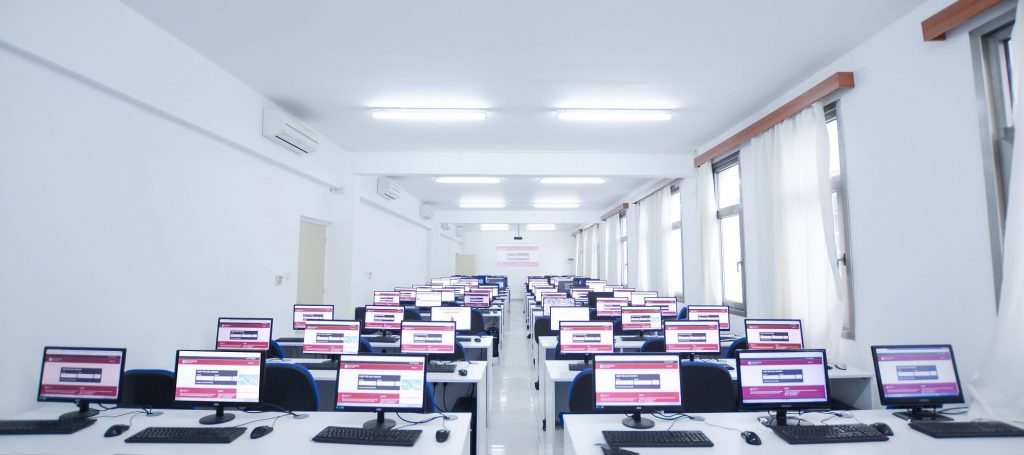
The Near East University has announced that it is switching to online education system due to the decision of the Council of Ministers to suspend education until March 22, 2020, as a result of the decision of the World Health Organization on the coronavirus epidemic, which has been declared a pandemic by the World Health Organization.
In the statement made by the Press and Public Relations Directorate of Near East University, with the new decision taken after a 3-day break in education to prevent the spread of the new type of coronavirus (Covid-19) epidemic, in the direction to suspend education across the country until March 22, 2020, it has been reported that the university and the Near East College will continue their education through a distance education system without interruption. In the explanation stated that the courses will be held online in order to ensure the continuity of education and training of the students, it was stated that the distance education will be carried out through the address of https://uzem.neu.edu.tr/
In the training to be carried out through Moodle, Edmodo, Google Classroom and Google Meet systems, students need to log in to the system. Students will be able to perform all operations such as access to lessons, getting information, doing homework, and communicating through the interface offered to them during the distance education process.

Prof. Dr. İrfan Suat Günsel: “We will continue our training activities without interruption with our online training system…”
Near East University, Chairman of the Board of Trustees Dr. İrfan Suat Günsel said that as education has been temporarily suspended in schools due to health or other crises, they have discussed the strategies for ensuring the continuity of education and training and will continue education without interruption if necessary. Upon the decision to suspend education due to coronavirus, the courses will be conducted online in order to ensure the continuity of education and training of students. Prof. Dr. İrfan Suat Günsel noted that as Near East University, they have the necessary technological equipment, infrastructure, and system to perform high school and university education services by using distance education technologies.
“We have all technological infrastructure and equipment in online education to ensure continuity for education and training…”
Prof. Dr. İrfan Suat Günsel said, “With the new coronavirus epidemic spreading around the world, governments are taking various measures to stop this spread. Among these measures, universities, and schools from all over the world take a break from education. In line with the decision of the Council of Ministers to suspend education in our country, as Near East University, we will cover the education losses by conducting the courses online through UZEM (Distance Education Center), which provides our students with uninterrupted and seamless distance education service with its technological infrastructure and components. At Near East College, high school students will continue their education online via Google Classroom and Google Meet. With the distance education system that provides communication between teacher and student, students will be able to follow the courses on a central online platform, which they can access from their personal computers, mobile devices or tablets. Thus, we will cover our students’ education losses and development. As Near East University, having an innovative and developmental vision, we will continue to enrich the society with social benefit-oriented projects by keeping the cultural and technological values at the center of education, overcoming the time and place constraints, and improving their interactive digital implementation.”